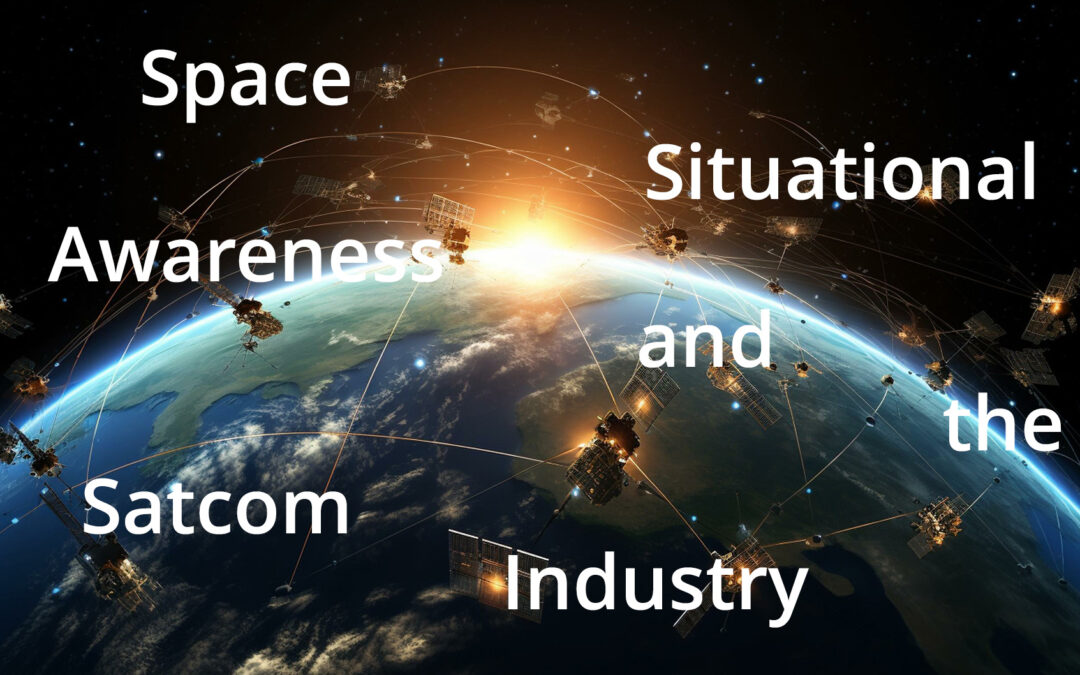As the number of satellites and other objects in orbit grows year-on-year, space traffic management is becoming increasingly challenging. For satellites to operate safely and avoid collisions, it’s crucial that the right data and systems are available to enable effective space situational awareness (SSA). To protect assets in space, we need to be able to identify objects in orbit, determine their current location, and make an accurate prediction about where the object will be in the near future. And as the number of satellites and the volume of debris in orbit increases, space situational awareness is only going to become more important.
Getting space situational awareness (SSA) right is crucial not just to avoid collisions, but also to preserve the long-term sustainability of space. A single collision could result in a catastrophic increase in the volume of debris in orbit. This would increase the risk of further collisions, which if occurred, would create more debris, increasing the risk again in an endless cycle that could eventually render space unusable.
Challenges around SSA
Several barriers hinder the progress of SSA. Political complexities, concerns around international security, and even commercial sensitivities, can prevent data from being shared. Additionally, different systems employ diverse data sources and employ various modelling and algorithmic approaches to predict the locations of space objects. This can and does result in dissimilar results which poses problems for satellite operators when planning avoidance manoeuvres and coordination.
There is currently no centralised SSA system that all players engage with, and while there are accepted norms of behaviour and guidelines, there is no regulation in place to enforce engagement. As a result, governmental organisations and commercial operators have either developed their own SSA systems or come together to pool data in a controlled manner to enable SSA capabilities.
Recent developments
Several promising initiatives have been recently announced regarding the promotion of SSA and the mitigation of space debris. The European Space Agency has published a Zero Debris Charter with the aim of shaping the global consensus on space sustainability, and the Global Satellite Operators Association (GSOA) has released a Code of Conduct on Space Sustainability, with the purpose of identifying and endorsing industry space sustainability practices that will enable the world to maximize the use of, access to, and benefits from, space resources. The Secure World Foundation, supported by space industry players, has released a Space Industry Statement in Support of International Commitments Not To Conduct Destructive Anti-Satellite Testing. Additionally, the EU SST also opened its Collision Avoidance Service to international users, so that owners and operators established outside of the EU can register.
While these initiatives indicate that we’re moving in the right direction, we’ve still got a long way to go. And unfortunately, time is not on our side, so we need to pick up the pace.
Final thoughts
As space traffic increases and the volume of orbital debris grows, it’s critical that the industry has effective space situational awareness systems. The consequences of not getting it right could well be catastrophic, so the stakes are high.
But how do we improve SSA, particularly given the complexities around data sharing, political issues and financial responsibility? While we don’t yet have all the answers, what is clear is that all space users have a responsibility to engage with SSA efforts. We need much closer collaboration between all parties, improved data, and governments around the world also need to be more proactive. The long-term sustainability of space is dependent on all space players recognising the importance of SSA and collaborating to improve it, so that the safety and security of assets in orbit is maintained.
To find out more about the SDA’s work to enhance the safety of flight via sharing of operational data and promotion of best practices across the industry, get in touch.

